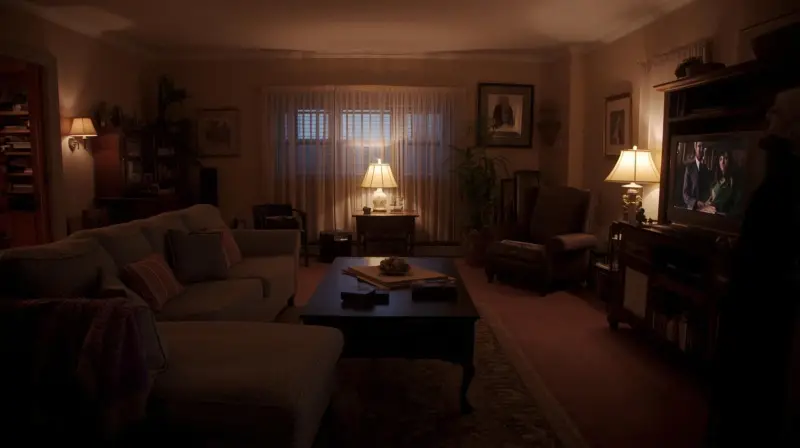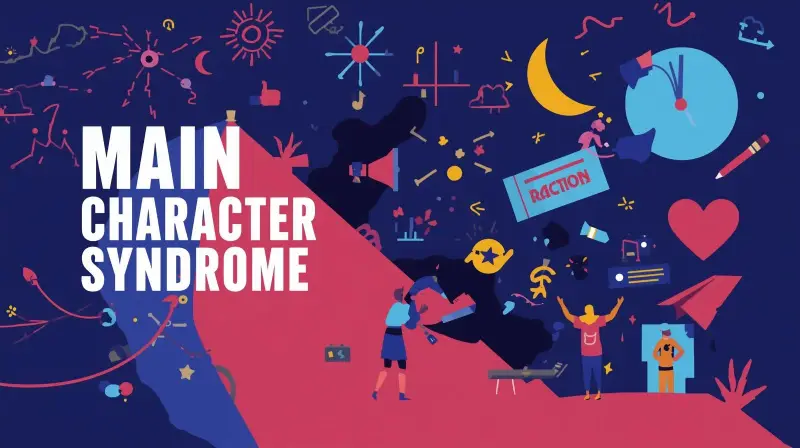If you think breakups are the worst, wait till you experience situationship burnout. That might just change your mind. The more Gen Z are inventing terms, the more complicated relationships are getting. Benching, branching, breadcrumbing and believe me, there is even more slang in the dating world. Somewhere between people who don’t want to commit and still want attention, you get stuck. That’s how situationships start. It feels like a relationship but without any “labels”. And you are not alone; there are many people that go through emotional exhaustion from being in almost-relationships that never move forward. It’s confusing, draining, and honestly, it can hurt!
So, what to do?
What is a Situationship Burnout?

Unless you are living under a rock, if someone doesn’t want to commit, doesn’t want labels, and there’s always a “hot and cold” response from him, you are likely in a situationship. You might be thinking, “Oh, this feels like we are dating,” but it often ends with piled-up expectations and delusions. It might seem harmless at first, but slowly confusion starts to wear you down. And that’s where the burnout begins.
It occurs slowly; you don’t even notice it at first. However, you will start to feel the once exciting connection feels heavy. You’re anxious when they don’t text back, overthinking every interaction, questioning whether they actually care or are just keeping you around for convenience. And somehow, despite all the effort you put in, you still feel stuck. The ambiguity will make you question “why can’t he love me?”, “Is something wrong with me?” It will make you doubt yourself. Situationship burnout is confusing and enticing but causes emotional havoc.
How to Know you are in a Situationship

Every relationship usually begins with the talking stage. You feel excited, a little nervous, and completely hooked on attention. The texts are non-stop, the calls stretch late into the night, and spontaneous meetups or weekend hangouts start to become the norm. It all feels fresh, exciting, and full of potential.
Before you know it, you’re sharing routines, making memories, and getting emotionally attached. It feels like dating. There’s affection, comfort, and the quiet thrill of having someone who seems to care. You start thinking about them constantly, replaying conversations in your head, looking forward to every moment together.
But somewhere along the way, you might start noticing the signs. Most of us brush them off at first, making excuses or giving the benefit of doubt. But the sooner you spot them, the less emotional chaos you’ll have to deal with later. You’ll sense the shift. The energy becomes inconsistent. Calls start getting declined with vague excuses. Replies come late, sometimes hours or even days apart. You feel like you’re chasing their attention more than sharing a connection. And when you finally confront them, they’ll either dodge the question or make you feel like you’re asking too much. Here are your “red flags” to understand you are in a situationship:
- They avoid putting a label on the relationship
- Communication is inconsistent and unpredictable
- You feel more anxious than secure
- There’s no talk or planning for the future
- You’re afraid to ask for clarity or express your needs
- They show up only when it’s convenient for them
- You do all the emotional heavy lifting
- Things feel intimate but never committed
- You’re constantly confused about where you stand
- Their words and actions often don’t match
How to Heal from a Situationship Burnout

Emotional recovery takes time, whether you’re dealing with a breakup, heartbreak, or just the constant dismissal of your feelings. These burnouts are not always loud or dramatic. It’s the slow build-up of being let down over and over again that leaves the deepest cracks. When you are in a situationship you always hold on to the “maybes”. Maybe he loves me. Maybe he is shy to commit. Maybe he is busy. That emotional limbo wears you down in ways you didn’t notice at first. One day you’re fine. The next, you feel drained, anxious, unsure of your worth.
Healing starts when you stop giving excuses and blaming yourself. Situationship always happens cause only one partner wants emotional connection, while others want undivided and unwavering attention. And wanting to have more isn’t “asking too much”; you deserve everything better.
Accept Your Feelings
The first step to healing from a situationship burnout is to recognize what you’re feeling. Emotional confusion, sadness, anger, disappointment, and even guilt is all valid. Just because the relationship was not official does not mean the emotional impact isn’t real. If you are feeling ignored, often dismissed, getting anxiety from a “hot and cold” response, it’s time to stop. If you want a real relationship, the sooner you accept your feelings, the less burnout you will feel. When you are connected, invested, and hopeful, you will always have the fear of losing that person.
Give yourself permission to feel judged. Write it down, speak to someone you trust, or sit quietly and name the emotions as they come. When you allow your emotions to surface without pushing them away or rationalizing them, you create space for clarity and future healing.
Have the “Talk”
Communication is the key to any healthy relationship. The moment you stop talking and sharing real feelings, things start to fall apart. Most situationships begin because no one wants to have a proper, heart-to-heart conversation. Both people just assume things. You try to play it cool, hoping not to scare the other person away. But staying silent only creates more confusion. You start overthinking every text, every late reply, every mixed signal.
Not everyone will understand what you are feeling. If you won’t ask, they won’t care. We human beings always avoid complicated things. If something feels off, say it. Ask where things are headed and, more importantly, be honest about what you want. Don’t hold back just because you think you’ll come off as “too much.” If someone’s right for you, they’ll respect that honesty. Having the “talk” isn’t about pushing for labels, you are just making sure you deserve clarity, not endless guessing games.
Stop Waiting for Clarity
One of the most painful habits we fall into during a situationship is waiting. Waiting for the late replies. Waiting for weekend plans that never really happen. Waiting for them to finally say, “Yes, this is something real.” You keep holding on, convincing yourself that maybe they’re just confused, maybe they’re scared, maybe if you just hang in there a little longer, things will shift. All these little dots connect to emotional burnout.
Waiting drains your self-worth slowly, while you keep hoping for a version of them that may never exist. Give yourself a time limit. If there’s no shift by then, walk away. No dramatic exit is needed. Just quiet self-respect. Write out what a fulfilling relationship looks like to you. Compare it to what you have. Seeing it in front of you makes it harder to lie to yourself. Don’t settle for a bare minimum effort. You can’t force love from someone who thrives in the grey.
Escape the “I’m Done” Loop
I understand. Sometimes we end up in a situationship where it feels like he or she is the one you’ve been waiting for. You connect deeply, you laugh, you feel seen in those fleeting moments and feel amazing. Even when you tell yourself, “I’m done,” you find yourself going back, hoping maybe this time they’ll show up differently. Reminder this is an endless loop of waiting and wanting. You leave, you miss them; they reach out just enough to reel you back in, and you’re back at square one. It’s not love; it’s the illusion of what it could be.
To truly escape the loop, you need to stop romanticizing potential and start focusing on patterns. If someone constantly makes you question your worth, ignores your needs, or keeps you confused, that’s not your fault. It’s not about one grand exit; it’s about small choices every day. You don’t need another “I’m done.” What you need is a clear boundary, held in place by self-respect and the belief that real love won’t make you feel this uncertainty.
Reclaim Your Peace
After a situationship burnout, your mind can feel stuck replaying old conversations and wondering what went wrong. One of the best ways to begin healing is by creating a structure in your day. A scattered routine often keeps us emotionally trapped, but a steady rhythm helps shift the focus back to you. Start with small things, make a routine and add small changes you want in your life, it can be exercise, cooking, or simply making your bed and cleaning your house. Then make a list of everything you would like to do. You can even pick up activities like painting, reading, and pottery. These are gently stimulating and help you emotionally recover. Don’t be busy just for the sake of distraction, just build a routine to stop yourself going back to the emotional loop.
Healing doesn’t always come in big waves. Sometimes, it starts with something as simple as getting out of bed. Celebrate the small winnings. Don’t isolate yourself. If the pain feels heavy, talk to someone. You can even consult a therapist; there’s nothing to be ashamed of. And remember, feelings don’t come on a scale; they’re real, messy, and personal.
Avoid Reopening the Door
In a situationship, people often leave and come back. It becomes a cycle of unfinished emotions and false hope. It’s especially difficult when you’ve finally started to move forward, when you’ve escaped your own “I’m done” loop, but somehow, they find their way back. Sometimes with nothing more than a simple “how are you?”. That one text can shake weeks of healing. You start to second-guess, replay moments, wonder if maybe this time it could be different. But deep down, you know how this story ends. Reopening that door brings back the same pain you worked so hard to walk away from. Don’t let one moment of weakness undo your progress. Your peace is worth more than a breadcrumb of attention.
If you are reconsidering, sometimes people come back when they are ready for a relationship. Growth isn’t always mutual. Just because they return doesn’t mean the pattern has changed. Tell me what you want from the start, keep a healthy boundary, if they aren’t showing effort, just leave without a second guess. You can totally go for it, if they are showing changes, but remember old habits are hard to die!
The Silent Weight of Situationship Burnouts

Situationship burnouts often go unnoticed because they don’t look like typical heartbreak. There’s no obvious end, no dramatic goodbye, and rarely any closure. You were never “official” so technically, there’s nothing to grieve. But the emotional toll is real. You poured your energy into something undefined, hoping it would eventually turn into something stable, something mutual. You kept showing up, understanding their mixed signals, and kept waiting for clarity that never came. And over time, it became exhausting.
Emotional burnouts often lead to questioning your worth. You might catch yourself thinking “Why can’t anyone love me?” or “Am I really that hard to love?” These thoughts don’t come from nowhere. It’s the result of repeated emotional negligence. Over time, these patterns make you internalize the problem, like maybe you’re the issue, maybe if you were different, they would’ve stayed. But the truth is, your worth isn’t determined by someone’s inability to meet you where you are. Their emotional unavailability is not a reflection of your value.
What makes it worse is the cycle. You think you’re done, then they reach out again with just enough attention to pull you back in. It’s never enough to feel secure, but just enough to keep your hopes alive. That constant back and forth chips away at your peace, and before you know it, you’re emotionally drained, mentally foggy, and questioning if love is supposed to be this confusing.
These burnouts often led to mental fatigue, disinterest in things you used to enjoy, and self-loathing. You might isolate yourself without realizing it. You might stop trusting your own emotional instincts. So, it’s better to leave and find the one you deserve.
Conclusion
Situationship burnouts isn’t dramatic, but it is damaging. It’s slow, quiet, and deeply personal. And the worst part? You often don’t realize how much it hurts you until you’re completely spent. That’s why it needs to be talked about more. Because pain without validation can be just as heavy, if not heavier, than a heartbreak with a name. Remember, you are your number one priority. You deserve consistency, care, and real effort. Don’t stay stuck just because you’re afraid there’s no one else like them. Situationship burnouts fear is a lie your loneliness tells you. So don’t settle for almost, maybe, or someday. You are not hard to love. You were just loving the wrong person.




